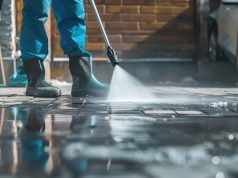The 2020 COVID-19 pandemic has had a profound impact on the travel industry. Before you head off on a long journey, you should consider how the changes will affect you. It’s in your best interest to be informed to protect yourself and your family.
Before traveling, log onto the U.S. Department of State website (or your own nation’s foreign department website) to learn about conditions where you’re planning to go and any travel advisories. Think about the extra items you may need to take on your travels to survive through this exceptional time.
Luggage
When packing, your priorities may have changed when compared to pre-COVID-19. If you are traveling light, take special care packing your backpack to ensure nothing essential is left out. You may need to carry more things to cope with the changes, so consider taking larger suitcases. Wheeled suitcases are especially convenient because they enable you to carry more than you would in a traditional suitcase. Hard-shell suitcases offer more protection for any fragile items you decide to take.
Personal Protective Equipment (PPE)
Although the places you travel to may now claim to be free from COVID-19, it is still wise to take precautions. Face masks and surgical gloves are useful to protect yourself against aerial infection and surface-contact infection when traveling on public transport. When choosing masks, note that surgical face masks only offer 75% protection from airborne particles while an N95 mask provides 95% protection.
Good hotels and restaurants will sanitize surfaces between customers. They will also provide hand sanitizer near the entranceway. However, if you want to be certain of infection-free surfaces, pack your own hand sanitizer and antibacterial wipes. It doesn’t do you any harm taking extra precautions.
Anything that touches your face or body
When you go traveling, you probably rely upon the towels and bathrobes supplied by your hotel. Also, when taking fun excursions, you likely use any equipment supplied as part of that tour, such as snorkeling masks and goggles.
All these items come into contact with your face. A good tour company or hotel will sanitize such items between users. Can you rely on them to do the job properly? You may choose to take a risk or choose to protect yourself and your family. Pack your own bath towels and any sporting equipment that comes into contact with your face.
Anything you normally buy at your destination
The COVID-19 outbreak has caused many disruptions to supply chains around the world as well as business collapses. This means that products you can normally purchase at your destination may no longer be available. Seek out up-to-date information from local expert guides. If unsure, take what you need from home.
This is particularly important if you have special dietary requirements, such as dairy-free or gluten-free food. It is also essential if you can only use one brand of body wash because others bring you out in a rash. Don’t make the assumption that because such items are available near your home, they will also be available at your destination.
Medication
Crucially, any travelers with a medical condition should ensure their medication is available at their destination or take sufficient doses along. If you suffer from an allergy and there is any possibility of you experiencing an anaphylactic shock, you must pack an EpiPen.
Don’t assume you can request what you need from local pharmacies. In the event that you cannot carry your medication for some reason, delay your journey until you can confirm with a physician or pharmacist at your destination that you will be able to obtain your medicine there.
Vitamin D is a good supplement to consider taking prior to and during your travel. Vitamin D boosts your immune system’s natural defenses against viral diseases such as COVID-19.
Cash and Cards
On previous travels, you may have opted to use cash for all your travel expenses. However, due to contamination concerns, many businesses around the world have decided to take bank cards only. Also, using a bank card protects you from the bacteria and viruses you might encounter if you use the local cash.
If you don’t have a contactless card, order one from your bank before you travel. A contactless card offers you maximum protection from surface-contact infection because you don’t need to touch anything. There are also other contactless payment systems you can consider using, like Apple Pay.
Appropriate Clothing
Before your journey, check the local weather report at your destination. Ensure you pack appropriate clothing for the weather conditions. If you are caught out in the rain or in the cold without sufficient protection, your body’s natural defenses are compromised. Like with everything else, do not expect to be able to buy suitable clothing at your destination.
Electronic Devices
Maybe you are used to leaving behind your electronic devices when you travel. Don’t. Many countries are now relying on an electronic track-and trace-system to record where visitors have eaten or slept, and you will need your cell phone to use these systems.
When traveling right now, there are often online forms to fill in, which will be easier on your laptop or tablet. For example, if you want to enter the UK, you will need to fill in an online Journey and Contact Details Form before traveling or you will not be allowed to enter the country.
Electronic devices also enable you to keep your eyes on the latest information about potential health problems so you can avoid any virus hotspots that arise. You can also keep your eye on the local weather, check out if places have reopened since the epidemic, learn about new opening hours, and read reviews to see if places are still worth visiting while COVID-19 restrictions are in place.
Don’t forget to take along the chargers for your electronic devices as well as electric adaptors so you can use the local power sockets.
Article from Outside Pursuits, connect with them:
https://www.outsidepursuits.com/
https://www.facebook.com/Outside-Pursuits-1252219454794921/

























